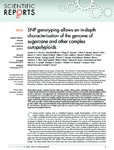Use este identificador para citar ou linkar para este item:
http://www.alice.cnptia.embrapa.br/alice/handle/doc/976559Registro completo de metadados
| Campo DC | Valor | Idioma |
|---|---|---|
| dc.contributor.author | GARCIA, A. A. F. | pt_BR |
| dc.contributor.author | MOLLINARI, M. | pt_BR |
| dc.contributor.author | MARCONI, T. G. | pt_BR |
| dc.contributor.author | SERANG, O. R. | pt_BR |
| dc.contributor.author | SILVA, R. R. | pt_BR |
| dc.contributor.author | VIEIRA, M. L. C. | pt_BR |
| dc.contributor.author | VICENTINI, R. | pt_BR |
| dc.contributor.author | COSTA, E. A. | pt_BR |
| dc.contributor.author | MANCINI, M. C. | pt_BR |
| dc.contributor.author | GARCIA, M. O. S. | pt_BR |
| dc.contributor.author | PASTINA, M. M. | pt_BR |
| dc.contributor.author | GAZAFFI, R. | pt_BR |
| dc.contributor.author | MARTINS, E. R. F. | pt_BR |
| dc.contributor.author | DAHMER, N. | pt_BR |
| dc.contributor.author | SFORÇA, D. A. | pt_BR |
| dc.contributor.author | SILVA, C. B. C. | pt_BR |
| dc.contributor.author | BUNDOCK, P. | pt_BR |
| dc.contributor.author | HENRY, R. J. | pt_BR |
| dc.contributor.author | SOUZA, G. M. | pt_BR |
| dc.contributor.author | SLUYS, M.-A. V. | pt_BR |
| dc.contributor.author | LANDELL, M. G. A. | pt_BR |
| dc.contributor.author | CARNEIRO, M. S. | pt_BR |
| dc.contributor.author | VINCENTZ, M. A. G. | pt_BR |
| dc.contributor.author | PINTO, L. R. | pt_BR |
| dc.contributor.author | VENCOVSKY, R. | pt_BR |
| dc.contributor.author | SOUZA, A. P. | pt_BR |
| dc.date.accessioned | 2014-01-17T11:11:11Z | pt_BR |
| dc.date.available | 2014-01-17T11:11:11Z | pt_BR |
| dc.date.created | 2014-01-17 | pt_BR |
| dc.date.issued | 2013 | pt_BR |
| dc.identifier.citation | Scientific Reports, v. 3, p. 1-10, 2013. | pt_BR |
| dc.identifier.uri | http://www.alice.cnptia.embrapa.br/alice/handle/doc/976559 | pt_BR |
| dc.description | Many plant species of great economic value (e.g., potato, wheat, cotton, and sugarcane) are polyploids. Despite the essential roles of autopolyploid plants in human activities, our genetic understanding of these species is still poor. Recent progress in instrumentation and biochemical manipulation has led to the accumulation of an incredible amount of genomic data. In this study, we demonstrate for the first time a successful genetic analysis in a highly polyploid genome (sugarcane) by the quantitative analysis of single-nucleotide polymorphism (SNP) allelic dosage and the application of a new data analysis framework. This study provides a better understanding of autopolyploid genomic structure and is a sound basis for genetic studies. The proposed methods can be employed to analyse the genome of any autopolyploid and will permit the future development of high-quality genetic maps to assist in the assembly of reference genome sequences for polyploid species. | pt_BR |
| dc.language.iso | eng | eng |
| dc.rights | openAccess | eng |
| dc.title | SNP genotyping allows an in-depth characterisation of the genome of sugarcane and other complex autopolyploids. | pt_BR |
| dc.type | Artigo de periódico | pt_BR |
| dc.date.updated | 2017-05-17T11:11:11Z | pt_BR |
| dc.subject.thesagro | Genótipo | pt_BR |
| dc.subject.thesagro | Genética vegetal | pt_BR |
| dc.subject.thesagro | Genoma | pt_BR |
| dc.subject.thesagro | Cana de açúcar | pt_BR |
| dc.subject.nalthesaurus | Genotype | pt_BR |
| dc.subject.nalthesaurus | Genome | pt_BR |
| dc.subject.nalthesaurus | Plant genetics | pt_BR |
| riaa.ainfo.id | 976559 | pt_BR |
| riaa.ainfo.lastupdate | 2017-05-17 | pt_BR |
| dc.identifier.doi | 10.1038/srep03399 | pt_BR |
| dc.contributor.institution | MARIA MARTA PASTINA, CNPMS. | pt_BR |
| Aparece nas coleções: | Artigo em periódico indexado (CNPMS)  | |
Arquivos associados a este item:
| Arquivo | Descrição | Tamanho | Formato | |
|---|---|---|---|---|
| SNPgenotyping.pdf | 1,24 MB | Adobe PDF |  Visualizar/Abrir |









